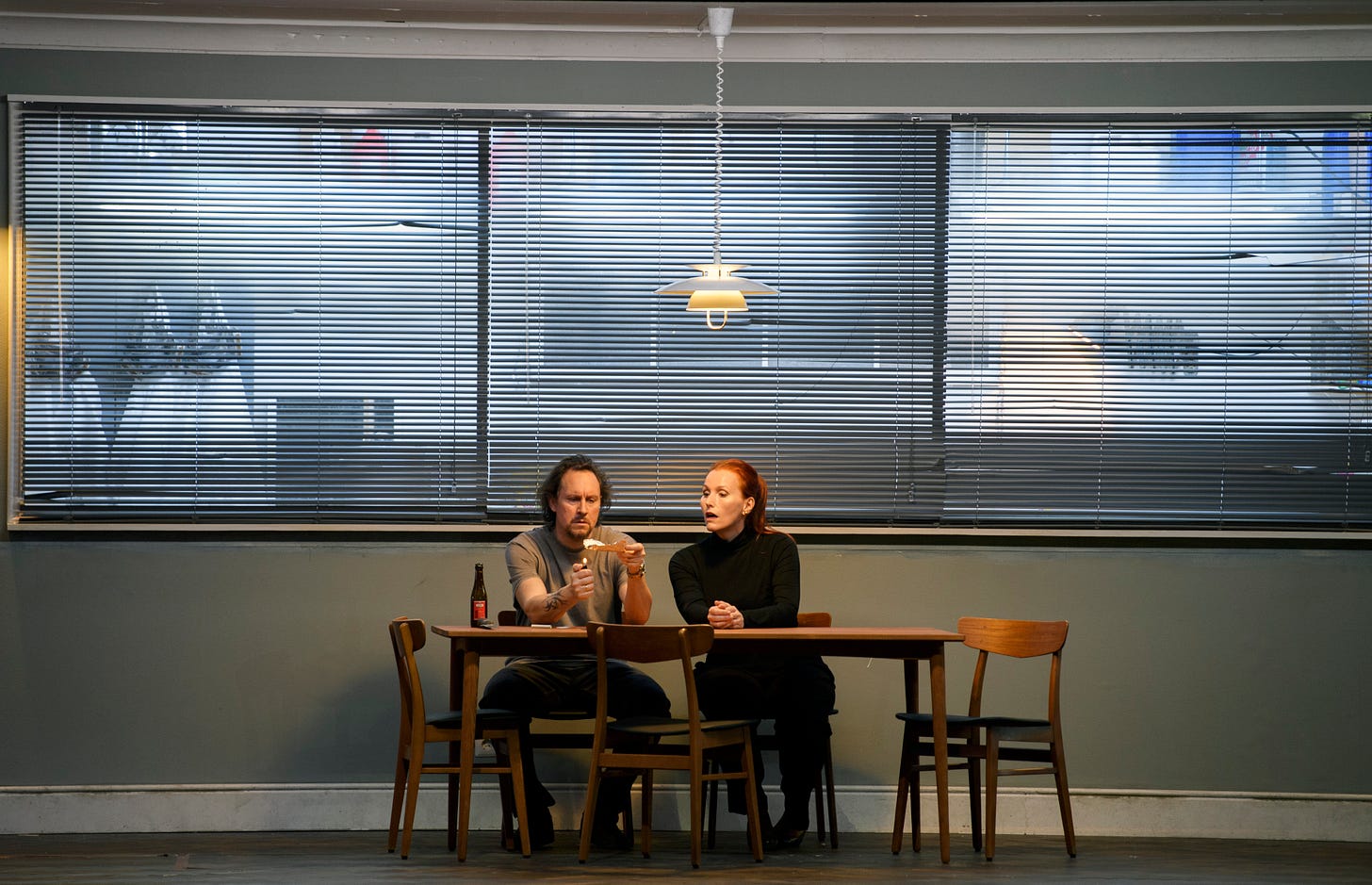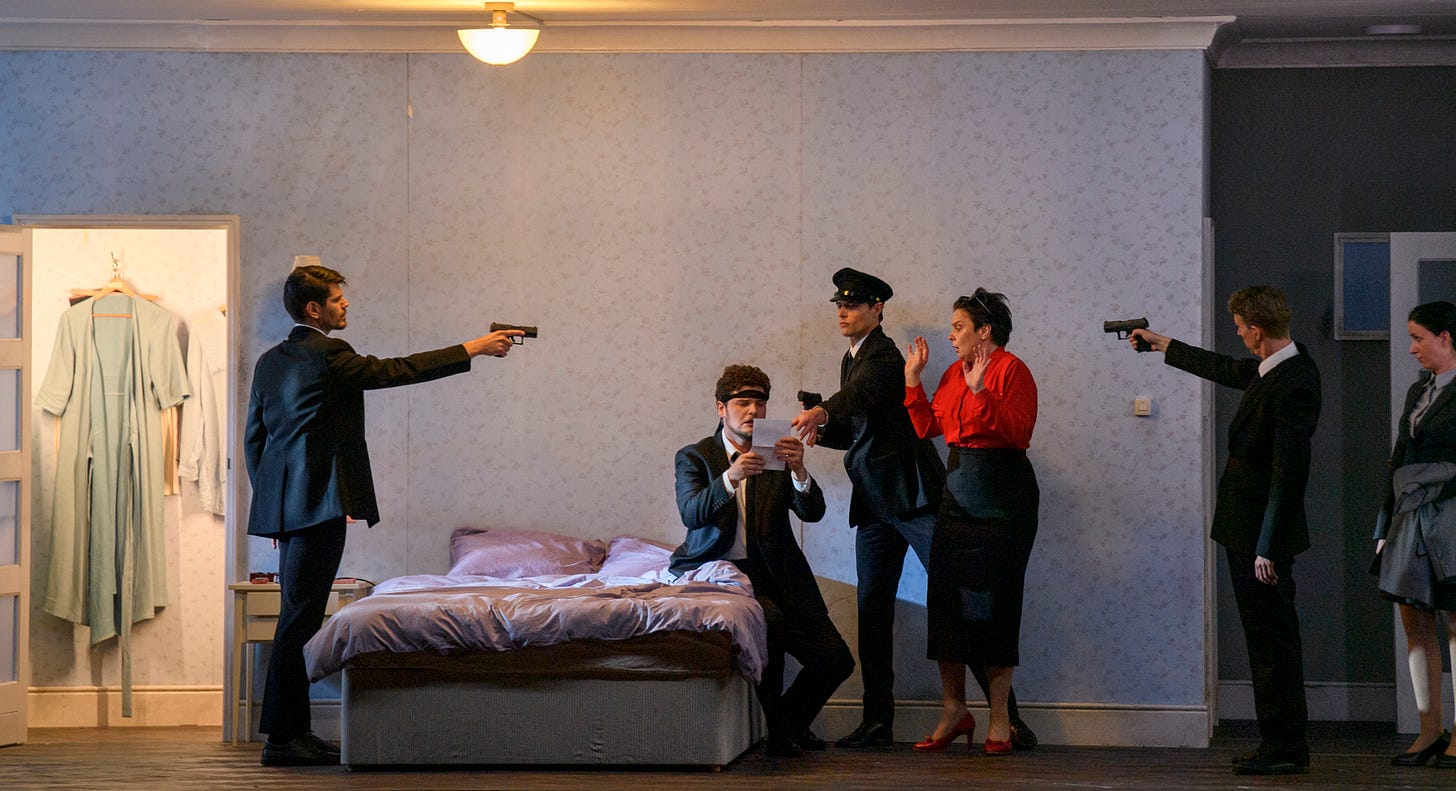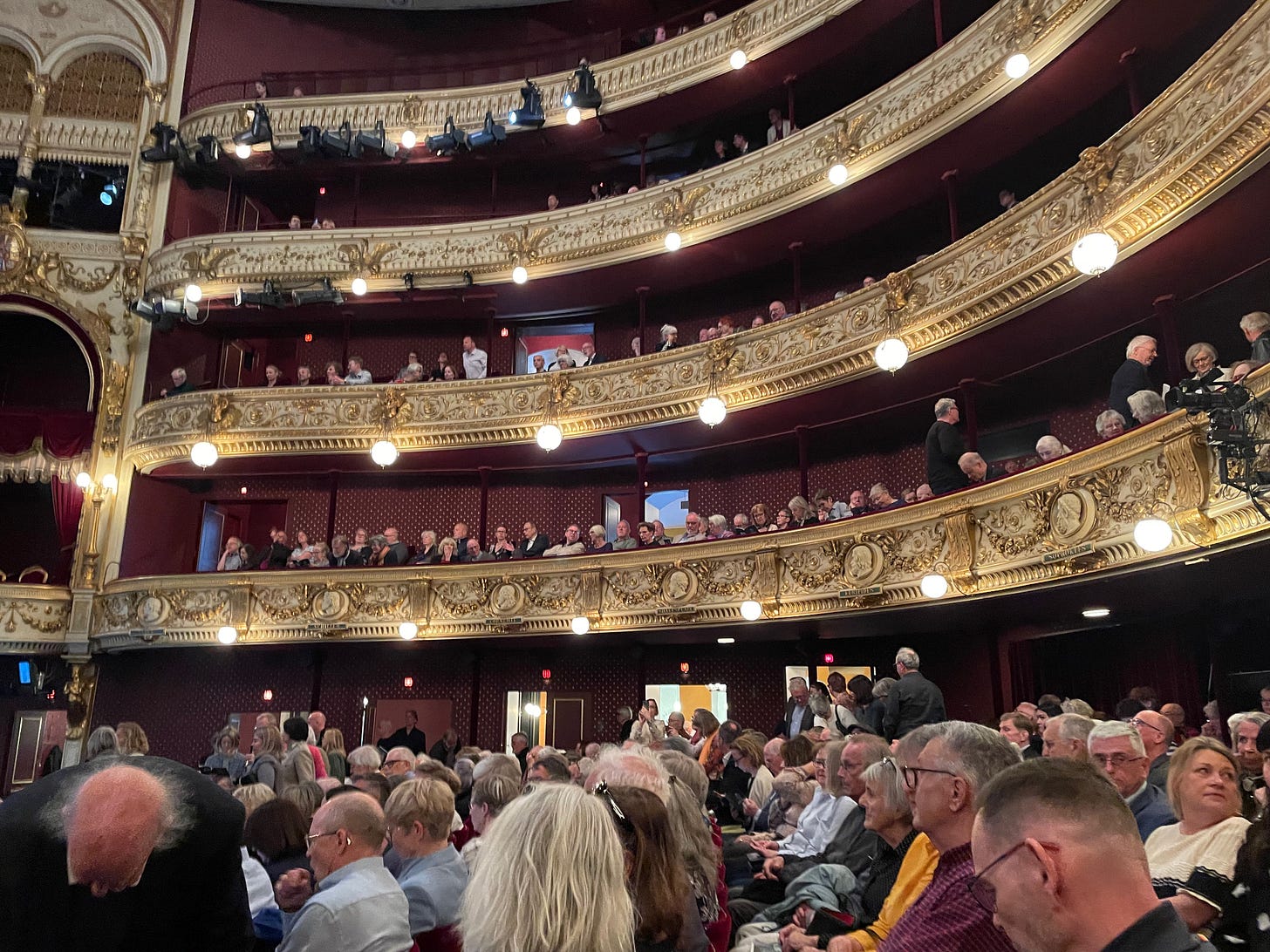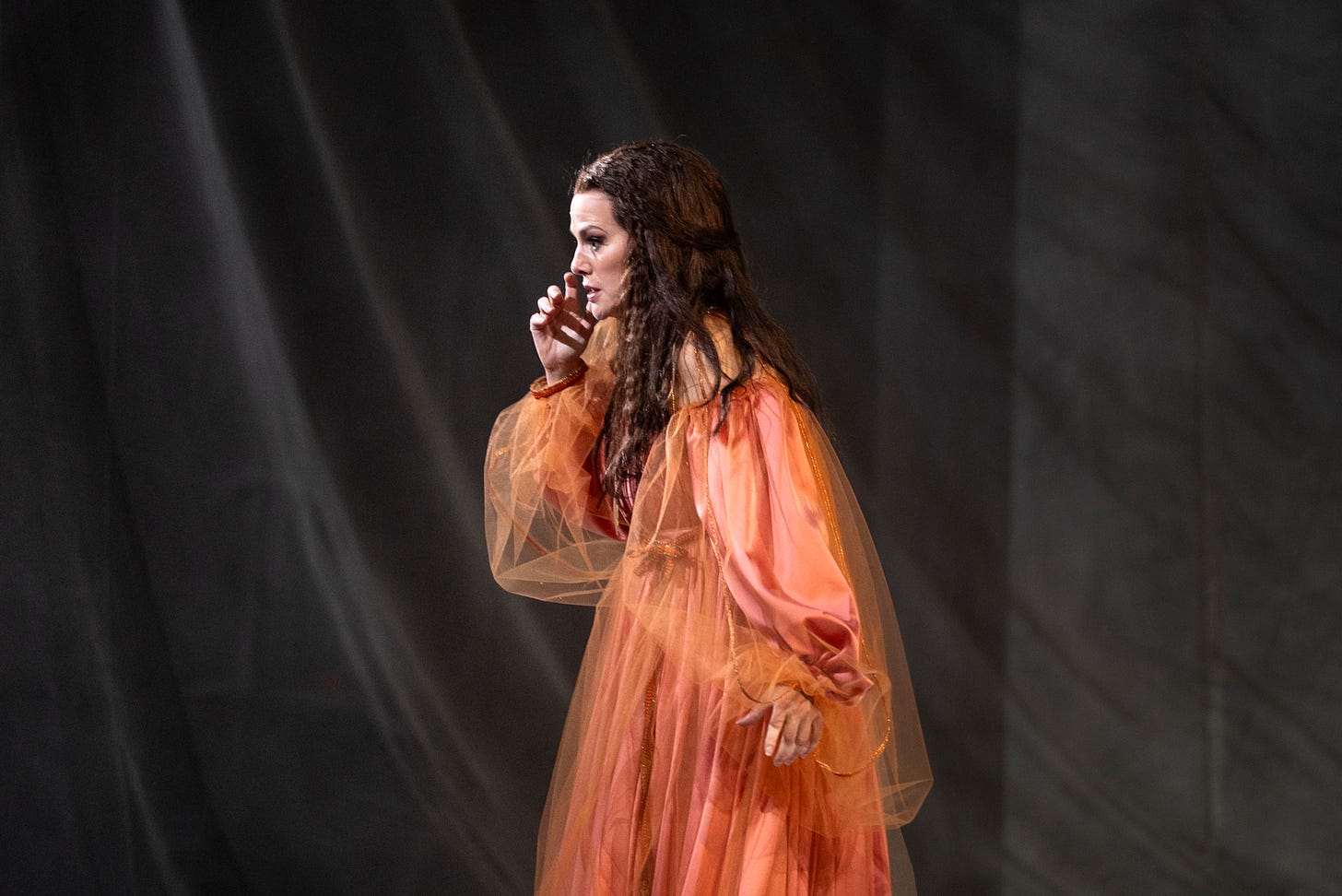Musical notes from abroad
I didn’t go to Europe to hear opera, but I wasn’t about to miss the opportunity while I was there
Several years ago, my wife and I made plans for a vacation in Northern Europe with some friends. We were going to visit Amsterdam during tulip season and hear some opera; visit the Norwegian fjords and hear some opera; visit Copenhagen, where our nephew lives, and hear some opera. The whole schedule was in place and the tickets arranged. Our travel dates were April 2020, so it’s no secret how that worked out.
Last month we were finally able to revive the entire plan — in one case with surprising exactitude. Director Katie Mitchell’s production of Strauss’ Die Frau ohne Schatten had been on the cards at the Dutch National Opera in 2020, but of course the pandemic put a stop to that. When we returned to Amsterdam five years later, the same production was there waiting for us, as if we’d passed through some dystopian Narnian wardrobe and emerged years later to find that the clock had only advanced a moment.

Mitchell’s production is set amid the trappings of modernity, and overall she doesn’t do much with those resources beyond the cliches of the directorial genre. There’s a sleekly contemporary penthouse for the Emperor and the Empress; Barak the Dyer and his wife inhabit a shabby (though perhaps not shabby enough) suburban tract house with a meth lab in the back where his ne’er-do-well brothers augment their meager income.
Like all directors, Mitchell has clearly struggled with the dramatic and emotional complications — or why not say failings? — of Frau. The opera’s two principal couples, the first of many deliberate echoes of Mozart’s Magic Flute, embody a celebration of marital love, but only insofar as such relationships involve children. The action is set in a world of various spirits, humans, and half-spirits, like Wagner’s Ring Cycle but without the underlying logic. The characters must undergo various tests and ordeals (again, Mozart has much to answer for) to no easily discernible purpose. Even under the best of circumstances, it’s a mess.
Mitchell’s solution, as best I can tell, is to cast the story as an inscrutable cloak-and-dagger procedural full of obscure intelligence outfits and mercenary armies. There are a lot of guns, both brandished and discharged — a decision that turns many of the characters into hostages or pawns rather than dramatic actors. (A housemaid arbitrarily shot to death at the end of Act 1 remains forgotten and unmourned when the final curtain comes down hours later.) Rather than illuminating the libretto’s obscurities, the production too often makes them even more indecipherable.
Yet amid the opaqueness, the drama comes alive in little moments of shimmering grace — a sublimely tender embrace of contrition and forgiveness between Barak and his wife, or a matching hug later on between the Empress and her father Keikobad, the mysterious ruler of the spirit realm. Mitchell, by the way, defies Hugo von Hofmannsthal’s libretto by making Keikobad an onstage presence, a tall silent figure with an antelope’s head; it’s a seemingly willful decision that pays off, sending a little chill up your spine each time he appears.
But if the work’s dramatic problems are too intractable to be solved in anything but piecemeal fashion, the audience can always luxuriate in the lush, multicolored glories of Strauss’ score. Conductor Marc Albrecht proved a wonderful guide in this regard, bringing out the music’s expressive intimacy and its vast array of instrumental colors. (I was surprised on returning home to find that Albrecht’s 2018 U.S. debut in San Francisco with Strauss’ Arabella had left me unimpressed. I can only surmise that he felt more at home in Amsterdam’s beautiful Stopera, where he spent most of the 2010s as chief conductor, than in the War Memorial Opera House, which is roughly twice as large.)
Standouts in the cast included tenor AJ Glueckert, whom San Francisco audiences remember fondly from his days as an Adler Fellow, as a noble Emperor and bass-baritone Josef Wagner as a sonorous, richly engaging Barak. But the artist I’m most eager to hear again was the Lithuanian soprano Ausrine Stundyte. (The program listed her as Aušriné Stundyté, a spelling I can find nowhere else, not even on her own website.) As the Dyer’s Wife, she gave a performance marked by enormous vocal authority and a matching dramatic virtuosity — the very qualities needed to help this difficult character register powerfully onstage. You needn’t appreciate her, and you certainly can’t love her (only Barak can do that). But in Stundyte’s hands, she inspired both fear and sympathy through singing of utmost beauty.
Onward to Scandinavia
The scheduling gods smiled upon us, and our one night in Bergen coincided with a superb performance of Berlioz’s Romeo and Juliet by the Bergen Philharmonic under the leadership of conductor Mark Elder. Elder is a dedicated champion of the composer’s music — one might even say a fanatic — and he gave a helpful, slightly hyperbolic spoken introduction outlining all the strokes of originality packed into Berlioz’s genre-busting work. As it happened, the breathless-praise part was almost a word-for-word reprise of Elder’s introduction to two extremely minor Berlioz scores in San Francisco in January, which made me suspect he says this about everything in the composer’s catalog. But Romeo, with its unclassifiable blend of narration, sung dialogue, and orchestral mimesis, really is a unique creation, and Elder’s impassioned commitment to the task yielded a performance of wondrous scope and detail.
In Denmark, finally, I had hoped to finally make the acquaintance of the sleekly modern Copenhagen Opera House. But the Royal Danish Opera’s offering was Vivaldi’s 1735 opera Griselda, which was suitably presented at the far more intimate Old Stage. It’s an unspeakably weird creation, about a king who proves the fidelity of his wife (the title character) by making her life a living hell and demonstrating just how much shit she’s willing to eat for love. (Or something; I’m not really sure.) The plot has its roots in Chaucer and Boccaccio, and Vivaldi was working from one of the most popular librettos by the 18th-century master Apostolo Zeno, set by Alessandro Scarlatti, the Bononcini brothers Giovanni and Antonio Maria, as well as dozens of others. So let’s just assume that things have changed a bit since then, and move right along.
What Griselda had going for it was a vivacious, tuneful score, led with brisk precision by the Danish early-music specialist Lars Ulrik Mortensen, and a cast graced by three first-rate female singers. Contralto Noa Beinart brought tragic authority to the title role, and soprano Mari Eriksmoen, as her daughter Costanza, dispatched cascades of coloratura with unnerving speed and dexterity. The evening’s true star, though, was Marlene Metzger, a young German soprano who is a member of the company’s young artist program. As the villainous Ottone, Metzger sang aria after aria with a combination of tonal power, silky phrasing, and exquisitely placed high notes that landed with an emphatic ring of clarity. She’s a talent; if you ever have a chance to hear her in action without crossing an ocean, you should grab it.
Cryptic clue of the week
From Out of Left Field #267 by Henri Picciotto and me, sent to subscribers last Thursday:
Cat, for instance, eating small rat, for instance (4)
Last week’s month’s clue:
Part of a boat, or in Quebec, part of a gun (9)
Solution: OUTRIGGER
Part of a boat: definition
or in Quebec: OU
part of a gun: TRIGGER
Coming up
• Oakland Symphony: The orchestra presents Paul Robeson: Here I Stand, a musical portrait of the great artist and activist by composer Carlos Simon and librettist Dan Harder. Bass Morris Robinson takes the title role, in a program featuring the Oakland Symphony Chorus in music by Jasmine Barnes and Johannes Brahms. May 16, Paramount Theatre, Oakland. www.oaklandsymphony.org.
• Tactus SF: Composers throughout the Renaissance and Baroque periods understood that the way to smuggle sex into your music without falling afoul of church authorities was to set texts from the Song of Songs. In a program titled “Arise, My Love,” the Bay Area chorus offers a garland of such settings by German composers of the 16th and 17th centuries, including Leonhard Lechner and Melchior Franck. May 17-18, San Francisco and Oakland. www.tactus-sf.org.
• Berkeley Symphony Chamber Series: Alongside its orchestral series, the Berkeley Symphony offers a regular schedule of chamber programs, each assembled by a guest curator. Flutist Stacey Pelinka has put together a fascinating-looking lineup featuring music by the late Kaija Saariaho, recent works by Chris Castro, Kay Rhie, and Jen Wang, and the Flute Trio of the great and still underappreciated 19th-century French composer Louise Farrenc. May 18, Piedmont Center for the Arts; May 19, Freight and Salvage, Berkeley. www.berkeleysymphony.org.









Oh, I don't know about Mozart having a lot to answer for. Hofmannsthal took the "Magic Flute" plot, already overloaded in various ways, robbed it of all humor, and inflated certain aspects of the story out of all proportion. I'm convinced that the focus on BABIES in "Frau" grows out of the thoroughly charming Papageno/Papageno scene where they're singing about their forthcoming little Papagenos and Papagenas.
Charm: not a word I would associate with "Frau," which has different virtues, to the extent that it has virtues.
I've been reading good things about Ausrine Stundyte for a few years and I'm very curious to hear her.
Lastly (I think) - the Berkeley Symphony Chamber Series program is also being done at 8 p.m. on Monday, May 19, at the Freight and Salvage, in Berkeley, which is where I'm planning to see it.
"echos" should be "echoes"